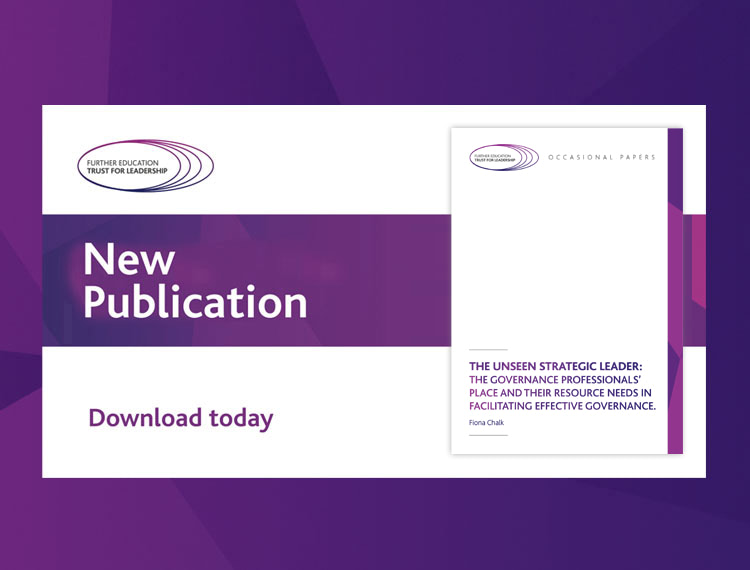The Unseen Strategic Leader: The governance professionals’ place and their resource needs in facilitating effective governance

A new paper from @FETforL considers the nature of governance in FE and asks how governance professionals can be supported in ensuring more effective governance
The Further Education Trust for Leadership (FETL) has published a new report which considers the role of governance in improving organisational performance and teaching and learning outcomes and makes a number of recommendations as to how its potential contribution to a successful, selfimproving FE system can be realised.
The Unseen Strategic Leader? The governance professionals’ place and their resource needs in facilitating effective governance, written by Fiona Chalk and commissioned and funded by FETL, builds on previous research into the role of the governance professional (the clerk) by analysing the views of clerks, principals, chairs and other stakeholders, including regulators and clerks from other sectors.
It highlights the role played by governance professionals in the performance of boards and the organisations they oversee and sheds light on both the obstacles that prevent them exerting appropriate influence and the importance of college leaders understanding the lines of accountability and how they should work, among other key messages.
Dame Ruth Silver, President of FETL, said:
‘This report’s focus on oversight and its relationship to performance and effective governance means that it explores similar terrain to that of another recent FETL publication, Blame or betterment? Regulation and intervention in further education, by Stephen Exley. The two reports should be read and utilised side by side as professional efforts to inform and shape debate about the role of further education in recovery and renewal. While Stephen’s paper analysed interviews with sector leaders to consider the regulatory obstacles that stand in the way of a genuinely ‘self-improving’ system and how they might be overcome, this report asks governance professionals, principals, chairs and regulators about their understanding of the role and scope of governance and how it might and should be made more effective.
‘This report represents an opportunity to think about the role of governance in the renewal of the sector and its contribution to wider national renewal, to take stock of the different systems and approaches to governance within the sector and, while acknowledging the important distinctions between the different strands of provision, move towards a common charter for governance to which we can all subscribe. There will never be a better time. For the sake of those who trust us with their futures as they enrol with us, both they and we who serve them cannot afford to waste it.’











Responses